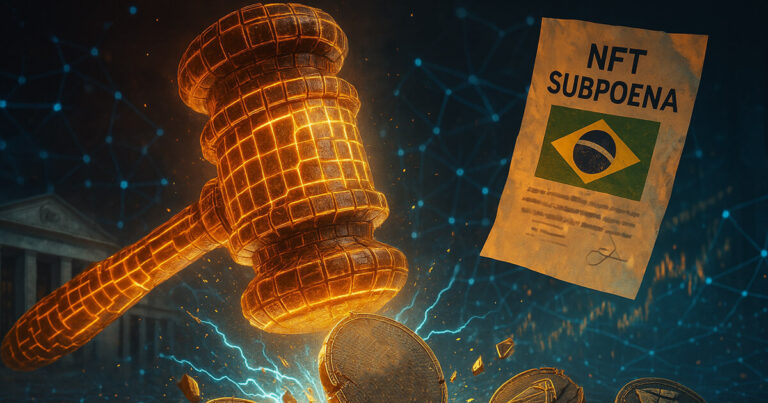Bitcoin’s Rise as a Reserve Asset: Navigating Inflation and Geopolitical Turbulence
Description:
A recent report from the Bitcoin Policy Institute posits that Bitcoin could serve as a valuable reserve asset for central banks, particularly in times of economic instability and geopolitical uncertainty. Titled The Case for Bitcoin as a Reserve Asset, the paper, authored by economist Matthew Ferranti, argues that Bitcoin’s unique properties make it a compelling alternative for safeguarding against various financial threats.
The Case for Bitcoin as a Reserve Asset
In recent years, the concept of Bitcoin as a reserve asset has gained traction among economists and policymakers. The decentralized nature of Bitcoin, coupled with its finite supply and deflationary tendencies, make it an attractive option for central banks looking to diversify their reserves and protect against inflation. In times of economic turmoil and geopolitical tension, traditional fiat currencies can lose value rapidly, leading to instability and uncertainty in global financial markets. Bitcoin, on the other hand, operates independently of any government or central authority, making it immune to the whims of policymakers and the pitfalls of traditional monetary policy.
Bitcoin’s Unique Properties
One of the key arguments put forth in the report is Bitcoin’s store of value proposition. Unlike fiat currencies that can be printed at will by central banks, Bitcoin has a fixed supply of 21 million coins, making it inherently scarce. This scarcity is believed to protect against inflation and preserve the purchasing power of Bitcoin holders over time. Furthermore, Bitcoin’s decentralized and borderless nature means that it can be easily transferred across borders without the need for intermediaries, making it an attractive option for international trade and commerce.
Another important characteristic of Bitcoin is its censorship resistance. Transactions on the Bitcoin network are immutable and cannot be reversed or tampered with, making it a secure and reliable store of value. This feature is particularly valuable in regions plagued by political instability or strict capital controls, where traditional financial systems may be unreliable or subject to government interference.
The Future of Bitcoin as a Reserve Asset
As central banks and financial institutions continue to grapple with economic uncertainty and geopolitical upheaval, the case for Bitcoin as a reserve asset will likely become more compelling. While some may still view Bitcoin as a speculative asset or a tool for criminal activities, its potential to serve as a hedge against inflation and a safe haven in times of crisis cannot be ignored. With increasing adoption and mainstream acceptance, Bitcoin’s role in the global economy may continue to grow, paving the way for a new era of financial stability and independence.
How Bitcoin’s Rise as a Reserve Asset Will Affect Me:
As an individual investor or consumer, the rise of Bitcoin as a reserve asset could have significant implications for your financial well-being. By diversifying your investment portfolio to include Bitcoin, you may be able to protect against inflation and safeguard your wealth against economic instability. Additionally, the growing acceptance of Bitcoin as a legitimate asset class may result in increased adoption and usability, providing you with more opportunities to transact and store value securely.
How Bitcoin’s Rise as a Reserve Asset Will Affect the World:
On a global scale, the adoption of Bitcoin as a reserve asset by central banks and financial institutions could revolutionize the way we think about money and monetary policy. By embracing Bitcoin’s decentralization and scarcity, countries may be able to mitigate the risks of hyperinflation and currency devaluation, leading to greater financial stability and prosperity for their citizens. Furthermore, the use of Bitcoin as a reserve asset may promote financial inclusion and economic empowerment, particularly in regions where traditional banking infrastructure is lacking or unreliable.
Conclusion:
In conclusion, the rise of Bitcoin as a reserve asset represents a paradigm shift in the world of finance and economics. By leveraging Bitcoin’s unique properties and decentralized nature, central banks and individuals alike can protect against inflation, geopolitical uncertainty, and financial instability. As the global economy continues to evolve, Bitcoin’s role as a safe haven asset and store of value may become increasingly important, ushering in a new era of financial autonomy and independence.






